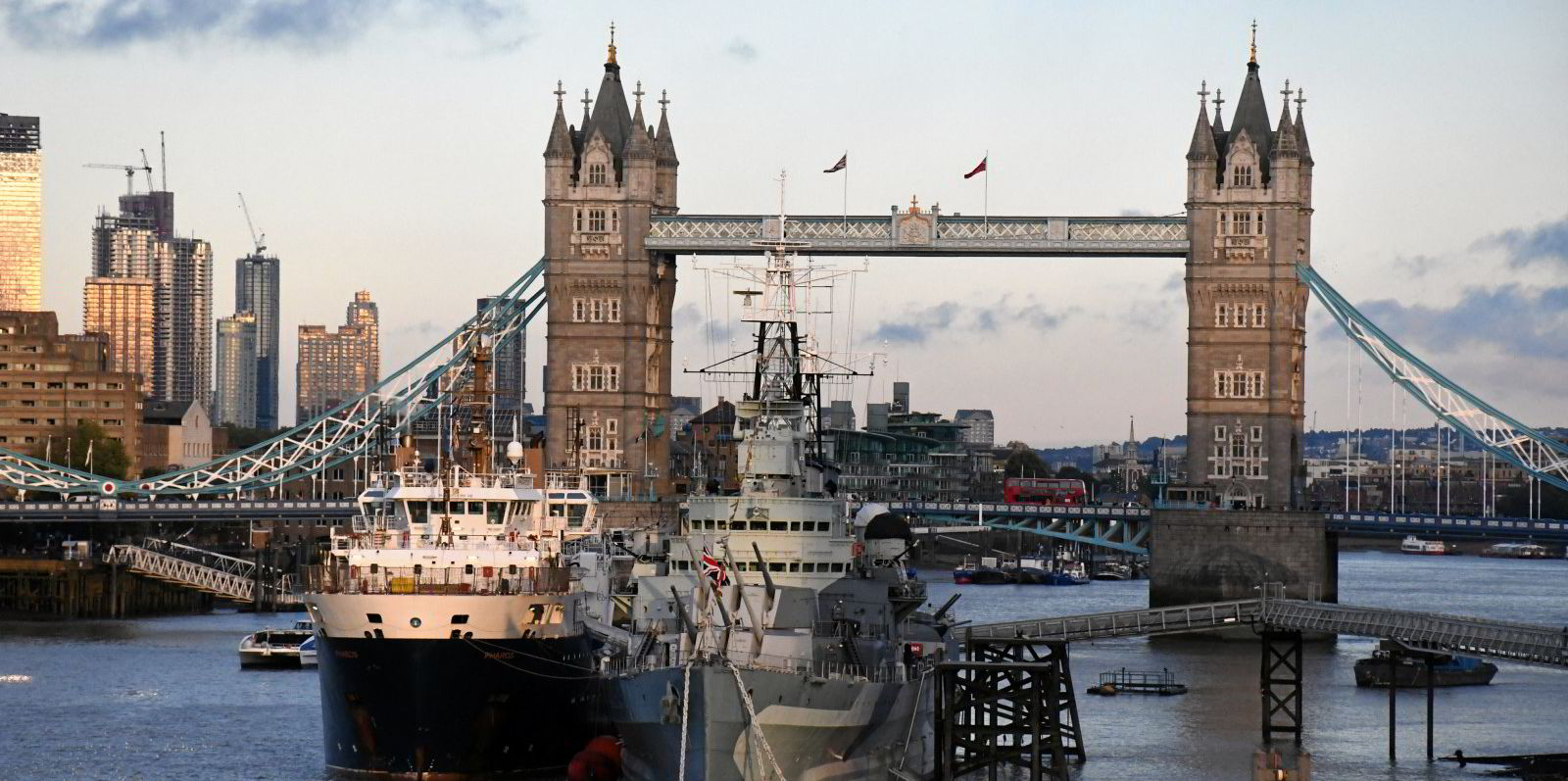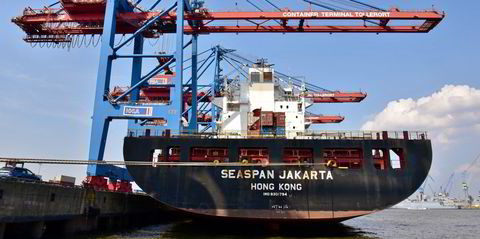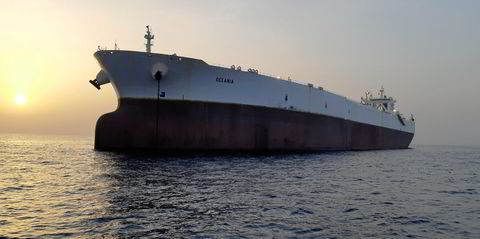New changes to the UK's tonnage tax regime will enter into force next year, which the Government hopes will reinvigorate the UK Ship Registry and the British maritime sector.
Under the reforms, preference will be shown to vessels that fly the UK flag when determining which companies can participate in the regime.
It will also be made easier for companies to enter their vessels into the Tonnage Tax regime and for a shorter period.
The long-anticipated changes were included in the Government's autumn budget and spending review, which was unveiled on Wednesday.
The Government said it is introducing the reforms to "modernise" the UK Tonnage Tax and "to ensure that the British shipping industry remains highly competitive", according to the report.
The changes are slated to come into effect from April 2022.
In announcing the budget before Parliament, Rishi Sunak, the Chancellor of the Exchequer, said the UK now has the freedom to deliver a "simpler, fairer" tax system, following its exit from the European Union.
Before Brexit, the UK Tonnage Tax regime was approved by the European Commission as state aid and governed by EU rules. The UK was obliged to ensure that at least 60% of the Tonnage Tax-registered fleet was sailing under the flags of EU states.
Tonnage tax has been a huge generator of revenue and has boosted the UK-owned fleet by an average 5.1% year-on-year growth since its introduction in 2000, although a decline has been seen since 2011.
In 2017, consultancy CEBR estimated the value of tonnage tax to the UK economy was about £3.1bn in 2015.
Tonnage registered under Britain’s Red Ensign has fallen by more than one-third in the last two years to a level of 10.4m gt in March.
Brexit has derailed plans which were unveiled in 2017 to double the size of the UK flag within five years.
French liner giant CMA CGM was the biggest group to take its UK-flagged fleet out due to Brexit uncertainty.
Prior to the UK referendum on leaving the EU in 2016, it had 49 ships under the British register.
Speaking before Parliament, Sunak said he was sure the Labour opposition party will be delighted "that red flags are still flying somewhere in this country — even if they are all at sea".
The UK's tonnage tax regime has proven popular with shipping companies but the same cannot be said for its ship registry, which has seen a 33% fall in registered tonnage since 2018.
The reforms
The Government said it is reforming the regime to increase the number of firms basing their headquarters in the UK and to boost its maritime services industry.
"The UK flag has a reputation for maintaining the highest international standards and the government wants more ships to benefit from this by registering in the UK," it said in the Budget report.
"The government will therefore remove any requirement for ships in the UK Tonnage Tax regime to fly the flag of any EU country now the UK has left the EU, and instead focus on boosting the use of the UK flag when determining which companies can participate in the regime."
The Government is also reducing the "lock-in" period — the duration of when vessels are within the regime — from ten years to eight years.
It said the change would make it easier for shipping companies to participate in the Tonnage Tax regime and that the eight-year period would align more closely with shipping cycles.
Broader scope?
HM Revenue & Customs (HMRC) will also be given more freedom to the Tonnage Tax regime "outside of the initial window of opportunity where there is a good reason", according to the Budget.
"HMRC will also review guidance on which vessels and operations qualify for the regime to take account of developments in technology and the shipping market since the tax was introduced," the document states.
This could open the door for oil rigs to be included within the regime, which was not previously permitted under the EU rules because they were not considered to be ships.
The Government said it would also review whether to include ship management firms within scope of the regime.
It also plans to review the existing limit that can be claimed in capital allowances by organisations leasing ships to Tonnage Tax participants.
The Budget gave no detail on changes to the Tonnage Tax's cadet training commitment, but said the Government would "explore how best to make use of existing powers".
Mark Dickinson, secretary general of the trade union Nautilus, was generally positive about the changes and said his organisation would work to safeguard the interests of seafarers.
"We welcome the changes and particularly welcome strengthening UK flag links. We will take active part in the ongoing discussion regarding the training commitment as we are seeking to secure 100% funding for cadet training," he said.
"We keep an open mind as the devil is in the detail, but if it generates UK jobs we are minded to be supportive."
Industry reaction
Gavin Simmonds, policy director at the Chamber, said: "This really does begin to put the Great back into British Shipping!"
The package of measures announced by the Chancellor will "enhance the attractiveness of UK ships and the UK as a global centre for shipping business", he added.
"Tonnage Tax has caused a renaissance in shipping since its introduction in 2000. It was in urgent need of updating to respond to changing trends in shipping and to better protect and promote maritime UK and global Britain," he said.
The package will "immediately strengthen the UK Flag, encourage innovation in the offshore energy sector and attract international investment," he added.
Simmonds said there is more work to be done on the cadet training commitment and in broadening the regime.







